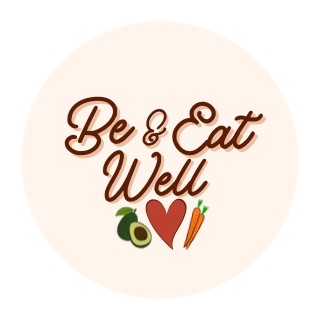I was recently asked the question during a nutrition consultation, “What foods should I stay away from?” I have to admit, I am asked this question quite a bit. The media and society has intentionally (or unintentionally) labeled food or food groups as “good” or “bad.” This begins a spiral of questions, confusion, shame, guilt, restrictions, cravings or depression when eating or even thinking about what to eat. I’d like to share a few thoughts I have on this topic and hope to bring you some peace around eating and shift your mindset to lessen your anxiety around eating “good” or “bad” foods.
Definition of “good”: to be desired or approved of. Definition of “bad”: of poor quality or a low standard. These two definitions bring a subjective stance to each of these words, as every single person who walks this earth has a different opinion of what is desirable and what is poor quality or a low standard, in terms of food. Yes, we have learned that fruits and vegetables are labeled as “good” while sugar, sweets and candy are “bad” but in the end, and overall, these foods, either “good” or “bad,” all contain calories. What is a calorie? The measure of energy in food. All food, no matter what it it, contains energy. This same measure of energy can respond entirely different from one person to the next. No matter if you choose to eat a doughnut or an apple, this food is nourishing your body. Definition of nourishing: (of food) containing substances necessary for growth, health and good condition. We need energy, we need growth, we need health, we need good condition, or (as I define it), well-being in life.
How do we go about our days, weeks, months knowing what foods we should eat, to give us nourishment? Again, this is going to be subjective and unique to each individual, as we all have our own distinguishing tastes, preferences and health conditions to consider. What we do know is that our decision does not include restriction of food. Definition of restriction: a limiting condition or measure. What does restriction create? The urge, the craving, the over-indulgence of a certain food or experience. I have a hunch you have all heard this before, that if you really want a piece of cake, eat it, otherwise you’ll continue to crave it and then over-indulge when you do choose to eat it. Over-indulgence then can lead to having feelings of guilt, shame, sadness, bloating, negative body image, resentment, etc. If we start to limit/avoid foods such as desserts and label them as “bad”, that might also ask us to question eating certain food groups such as carbs, red meat, healthy fats, etc. These foods may have higher calories, but again, asking ourselves the question of what type of food is nourishing, at this moment in my life, rather than what food is “good” or “bad”? Did I just finish a hard workout? Am I celebrating a friend’s birthday? Am I trying to lose weight? Am I trying to heal a certain disease or condition? What are YOU trying to accomplish?
A new diet seems to appear every few months. How many have you tried? How many have worked? Did you listen to your body or did you follow a plan that was made for you and everyone else in the world? Did you restrict yourself and then over-indulgence a few days in? Did you complete the diet? If so, how did you feel? Were you focusing on weight loss or nourishing your body? Did you make any long-term behavior changes around food choices, exercise or well-being? Are you still following through? How do you eat now? Do you label your food as “good” or “bad”? Do you allow yourself treats? If so, what are they? Are you happy with your food choices overall? Do you feel well? Do you struggle with chronic health conditions or obesity?
Going back to the initial question, “What foods should I stay away from?” My answer – NONE. Restriction is not the answer. Let’s rephrase this question: “Which foods can I add to my meals on a daily basis that will nourish my body?” OR “What foods make me feel good, physically, mentally, emotionally?” If we think about adding, versus subtracting, we’re setting ourselves up for long-term success. Rather than focusing on what you “can’t” eat, try focusing on your goals, your motivations, how your body feels when you eat certain foods, how much energy you have, how well you sleep, how well you’re able to manage your stress. These are the questions that will provide you with the answers you’re looking for. Yes, it might require a little more effort rather than following a list of forbidden “bad” foods and allowed “good” foods, but in the end, this will teach you how to listen to your body, how to eat in order to live a life feeling nourished and deciding for yourself, which foods bring you happiness and joy in the present and in the future.

I’d love to hear your thoughts and if this helped to shed some light on the notion of labeling foods as “good” or “bad.” If you’d like to learn more or discuss your individual goals, I’d love to hear from you! Please leave a comment below or email me at heather@beandeatwell.com
